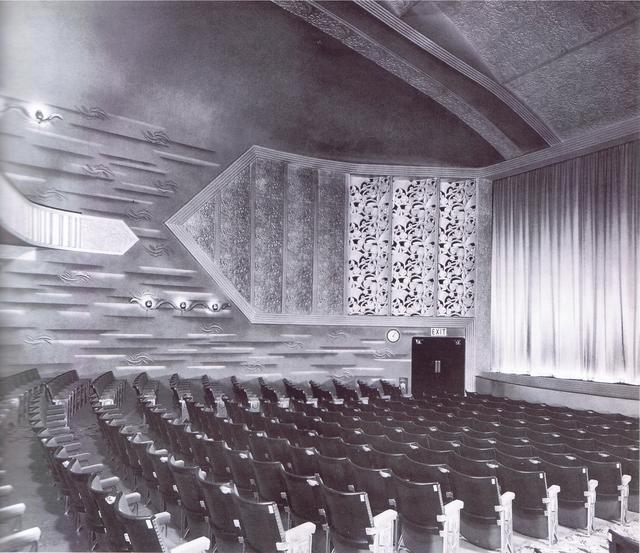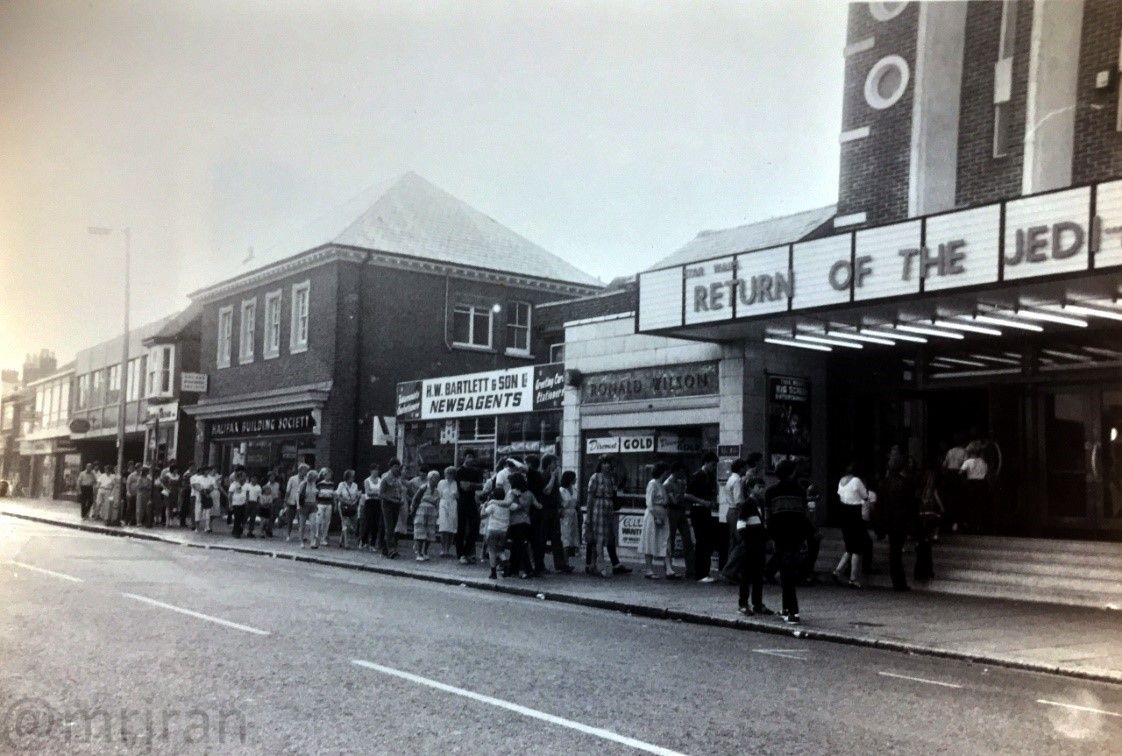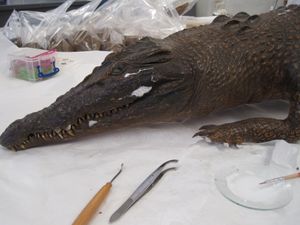An exhibition that tells the story of Fareham’s taverns and beer houses, music halls and theatres, picture palaces and fleapits. Relive over 200 years of locals letting their hair down, drowning their sorrows and losing themselves for a couple of hours to the magic of the silver screen.
Part 1- Cinema
From Music Hall to ‘The Gaff’ – early Cinema in Fareham
The first public performances of films before a paying audience in Great Britain began at the Polytechnic in Upper Regent Street, central London, on 21 February 1896. Consisting of short films made in France by the Lumière brothers and shown via their Cinématographe equipment, the programme was so successful that it transferred to the Empire Music Hall in Leicester Square as one of the top items on the bill. The new marvel of 'animated pictures' spread rapidly through travelling fairs, showmen hiring local halls for special shows and, most significantly, through the music halls.
The Alexandra Music Hall
At the beginning of the twentieth century, films could be watched in Fareham courtesy of a Magic Lantern Show put on in the Portland Hall or Town Hall by a travelling company named ‘Poole’s Diorama’.
In 1906, The Alexandra Music Hall had opened in West Street originally to cater for stage performances but its owner, Thomas Flemons had bigger ideas and after extensive renovations transformed it into an Electric Theatre. The Alexandra Cinema Deluxe (nicknamed ‘The Gaff’) reopened on 10th December 1910.

Keeping the business in the family, Thomas’s wife worked as an usherette and his son Sidney as a projectionist. At that time films were silent and so required a pianist or even a small ‘orchestra’ - a few musicians to provide suitable accompanying sound tracks. So the Flemons’ second son, Ray played the violin and Sidney’s wife, Kathleen played the piano.
However, despite its capacity being enlarged to 650 in 1928 by its then owner William Bonwick, The Alexandra closed its doors in 1933 and the site was abandoned for five years.
Picture Palaces and Cinema’s Golden Age
New regulations came into effect in January 1910 to improve cinema safety. As the nitrate film stock being projected was highly inflammable, cinemas were required to provide a fire-resistant projection booth. This resulted in a boom in purpose-built picture houses such as The Alexandra. These usually had flamboyant exteriors to catch the eye with payboxes open to the street.
With the emergence of Art Deco design in the 20’s facades became more stylised and interiors richly decorated with plasterwork on interior walls and ceilings reflecting the on-screen glamour of Hollywood’s Golden Age.
The Savoy
In 1933, The Savoy Buildings were constructed accommodating shops, restaurants, businesses and a 982 seat cinema on two levels – The Savoy.

Incorporating stylish Art Deco design, marble fittings, expensive Ernimann projectors, a modern sound system, a luxury café, free parking for 400 cars and oil-fired central heating, the construction cost the fantastic sum of £25,000.
The Savoy opened on 21 December 1934 with ‘Hell Below’ starring Robert Montgomery, Madge Evans and Jimmy (Schnozzle) Durante. In 1936 The Savoy was taken over by the Shipman and King circuit who also owned The Embassy. Over the following years, however habits of the film viewing public changed and the company were no longer able to justify having two cinemas in Fareham.
The Savoy closed on 4 February 1961.
The site was taken over by Woolworths and is now occupied by Poundland.
Morale Boosters, Blockbusters and Multiplexes
All cinemas were closed at the start of the Second World War in September 1939 but opened again within a week as the authorities realised that the nation needed entertainment to keep up morale. Cinemas enjoyed a boom in attendances from 1941 onwards, with audiences seeking escapism from the horrors of war.
The post-war period saw a steady decline in cinema going. By the 1970s cinemas became increasingly dependent on ‘blockbuster’ films, the first of these being Jaws in 1975 followed by the start of the Star Wars saga in 1977.
The first multiplex cinema in the UK opened in Milton Keynes in 1985. With a million admissions in its first year, it paved the way for further multiplexes, usually in out-of-town sites resulting in the further decline of town centre cinemas.
The Embassy

The Embassy Cinema was opened on 19th April 1938 on the site of the old Alexandra Music hall by Captain Manley-Power. The luxury Balcony tickets cost 1s/6d (£3.78) or 1s/3d (£3.50) while the less well-appointed Stalls tickets were 1s (£2.52), 9d (£1.89) or 6d (£1.26). Built in the typical Art Deco style of the era inside and out, it provided a state of the art High Fidelity sound system together with the latest technology to reduce eye strain, all within a luxurious setting. The first film to be shown was ‘Doctor Syn’ starring George Arlis and Margaret Lockwood.

The growth of television and a harsh entertainment tax crippled the cinema industry during the 1970s and on 27 August 1983 the Embassy closed its doors for the last time with ‘Superman III’ starring Christopher Reeve and Richard Pryor.
The building was demolished a year later. MacDonald’s Restaurant now stands on the site.
The Apollo Cinema, built on the site of a car park in Vannes Parade, opened on 29 January 2005 and was taken over by the current Reel Cinema in January 2013.
If you have enjoyed Culture on Call and you are able to make a donation, any support you can give will help us keep people connected.



